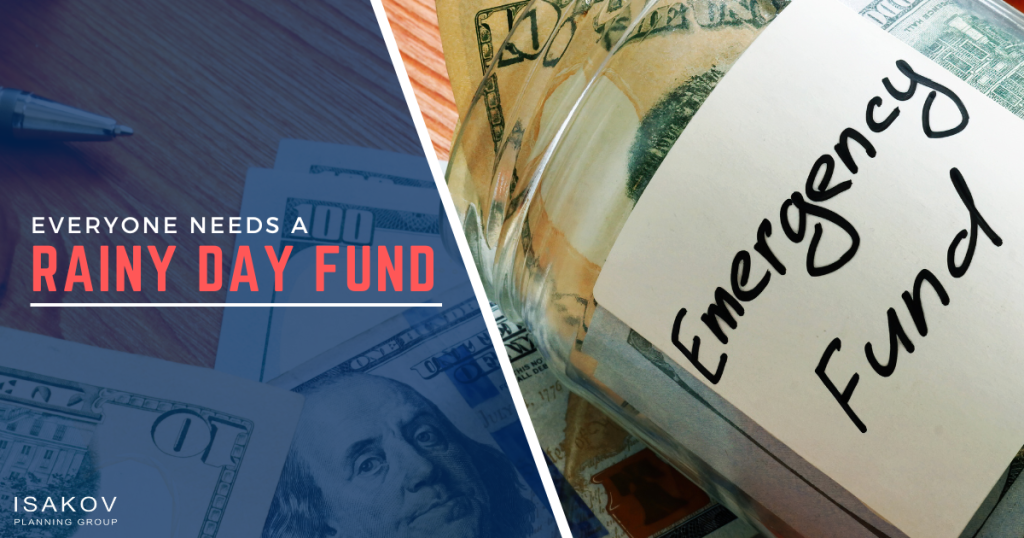Emergency and Unanticipated Spending: Everyone Needs a Rainy-Day Fund

The idea of saving money for “a rainy day” is a founding principle of financial management. Though the advice is as old as investing itself. Putting aside money for unforeseen costs, such as major home or car repairs, sudden job loss, funeral expenses, divorce proceedings, among others, are people really heeding this sage advice? From a real sense, the likelihood of more severe weather is increasing, and a rainy-day fund couldn’t be more relevant today.
As a financial planner, we understand that even people with means may relegate a rainy-day fund to the back of their priority list. There are many other places to put their money, like their 401K or IRA retirement plans, 529 savings plans, or other mid-term or long-term investments. But even these individuals should plan to have money available for emergency and unanticipated spending. In fact, at Isakov Planning Group, we consider a rainy-day fund one of the top priorities for our financial management clients.
For people who are just starting to manage their finances, our mantra is “crawl before you can walk, and walk before you run!” That means, the first tentative step in improving your finances is to save enough money to sustain you and your family for 3 to 6 months. Only then should you shift your attention to other desired goals, like a wealth-building investment or retirement account. Emergencies can and will occur at any time: Having this monetary buffer is essential to gaining what we term “financial peace.”
Some might ask, “Why not reserve use credit cards to pay for these unexpected expenses?” This is not a good financial approach for your emergency expenses. High-interest monthly payments to credit-card companies are just monthly reminders of your past emergency or unanticipated need for cash.
Instead, deposit these rainy-day funds into an account that is easy to access (“highly liquid”). In other words, avoiding investments that, if needed, may take more time and effort to convert to cash. A good choice is a high-yield savings account. On the other hand, a certificate of deposit (CD) would not be a wise choice, because they typically require that money stays in the account for 3, 6, or 12 months (or even longer in some cases).
Rainy-day funds are not only crucial in emergency spending. They are really a defense against any necessary, unanticipated expense that isn’t a line item on your monthly budget. This could also result from a routine medical expense or a minor car repair. For example, can you easily afford your health plan’s copayment for a colonoscopy screening? Or the bill for a 60,000-mile check-up for your car, which can cost several hundred dollars? Again, a mid-size withdrawal from your rainy-day account is a much better way to pay the expense than paying with a high-interest credit card. But be sure to replace the funds you use; remember, that account needs to support you and your family for several months, if necessary.
At Isakov Planning Group, we can help you prioritize how you save and invest your money, and ensure you have a solid storm wall to defend against that rainy day!
